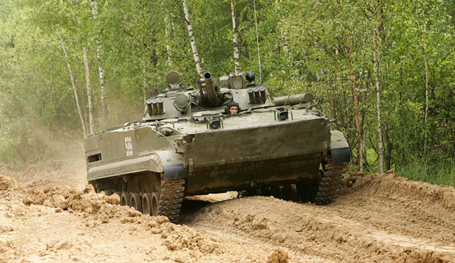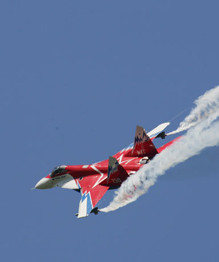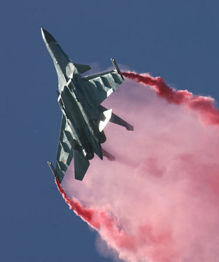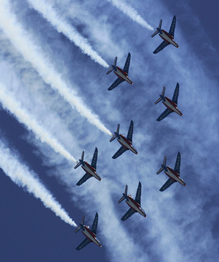Epiphany: When all water turns holy
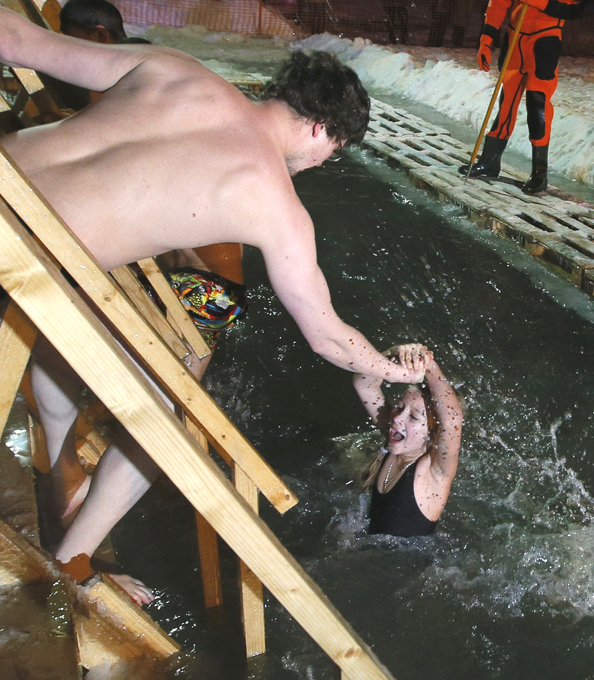
As elsewhere in the Orthodox world, the Russian Church conducts the rite of the Great Blessing of the Waters, also known as "the Great Sanctification of the Water" on that day (or the eve before). The priest-led procession could simply proceed to thefont, but traditionally the worshipers would go to a nearby lake or river.
As elsewhere in the Orthodox world, the Russian Church conducts the rite of the Great Blessing of the Waters, also known as "the Great Sanctification of the Water" on that day (or the eve before). The priest-led procession could simply proceed to thefont, but traditionally the worshipers would go to a nearby lake or river.
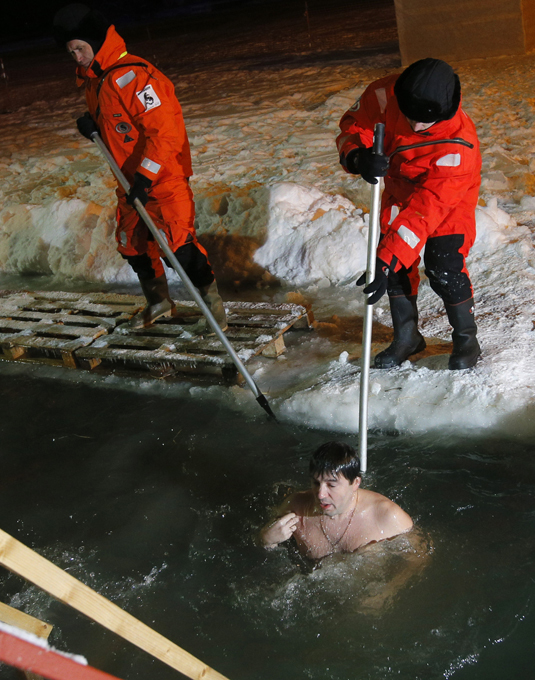
Historical records indicate that the blessing of the waters events took place at the courts of Moscow Czars since no later than 1525. According to historians, the blessing of the waters procession was the most magnificent of the annual Czar's court's ceremonies, comparable only to such special events as royal coronations and weddings. After a divine liturgy in the Kremlin's Dormition Cathedral, the procession, led by the Czar and the Patriarch of Moscow would proceed to the frozen Moscow River
Historical records indicate that the blessing of the waters events took place at the courts of Moscow Czars since no later than 1525. According to historians, the blessing of the waters procession was the most magnificent of the annual Czar's court's ceremonies, comparable only to such special events as royal coronations and weddings. After a divine liturgy in the Kremlin's Dormition Cathedral, the procession, led by the Czar and the Patriarch of Moscow would proceed to the frozen Moscow River
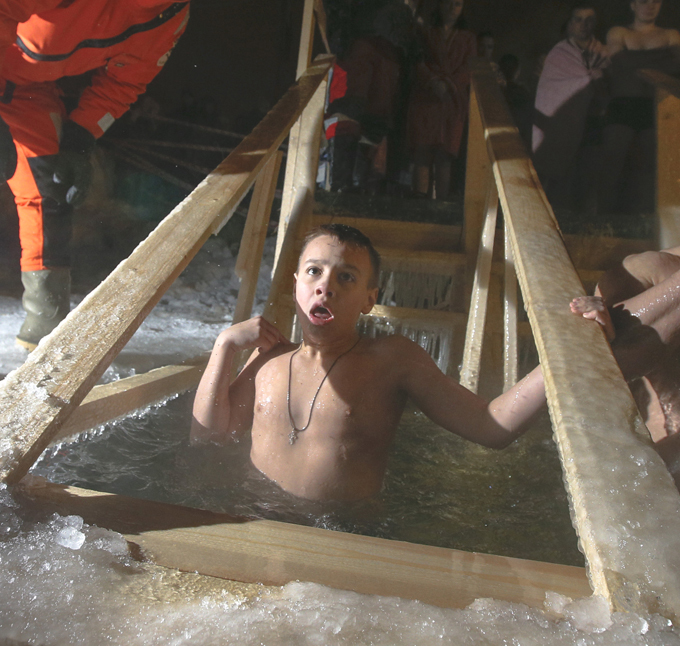
Believing that on this day water becomes holy and is imbued with special powers, Russians cut holes in the ice of lakes and rivers, often in the shape of the cross, to bathe in the freezing water. This practice is said to be popularized comparatively recently; it was fairly uncommon in the czarist days, but has flourished since the 1990s
Believing that on this day water becomes holy and is imbued with special powers, Russians cut holes in the ice of lakes and rivers, often in the shape of the cross, to bathe in the freezing water. This practice is said to be popularized comparatively recently; it was fairly uncommon in the czarist days, but has flourished since the 1990s

Participants in the ritual may dip themselves three times under the water, honoring the Holy Trinity, to symbolically wash away their sins from the past year, and to experience a sense of spiritual rebirth.
Participants in the ritual may dip themselves three times under the water, honoring the Holy Trinity, to symbolically wash away their sins from the past year, and to experience a sense of spiritual rebirth.

Orthodox priests are on hand to bless the water, and rescuers are on hand to monitor the safety of the swimmers in the ice-cold water. Others limit their participation in the Epiphany rites to those conducted inside churches, where priests perform the Great Blessing of Waters, both on Epiphany Eve and Epiphany (Theophany) proper
Orthodox priests are on hand to bless the water, and rescuers are on hand to monitor the safety of the swimmers in the ice-cold water. Others limit their participation in the Epiphany rites to those conducted inside churches, where priests perform the Great Blessing of Waters, both on Epiphany Eve and Epiphany (Theophany) proper

The water is then distributed to attendees who may store it to use in times of illness, to bless themselves, family members, and their homes, or to drink. Some Russians think any water - even from the taps on the kitchen sink - poured or bottled on Epiphany becomes holy water, since all the water in the world is blessed this day
The water is then distributed to attendees who may store it to use in times of illness, to bless themselves, family members, and their homes, or to drink. Some Russians think any water - even from the taps on the kitchen sink - poured or bottled on Epiphany becomes holy water, since all the water in the world is blessed this day

In the more mild climate of the southern city of Sochi meanwhile, where air and water temperatures both hover in the low to mid 10 degree Celsius range (50 degrees Fahrenheit) in January, thousands of people jump into the Black Sea at midnight each year on Epiphany and begin to swim in celebration of the feast
In the more mild climate of the southern city of Sochi meanwhile, where air and water temperatures both hover in the low to mid 10 degree Celsius range (50 degrees Fahrenheit) in January, thousands of people jump into the Black Sea at midnight each year on Epiphany and begin to swim in celebration of the feast

The traditional date for the feast is January 6. However, since 1970, the celebration is held in some countries on the Sunday after January 1. Eastern Churches following theJulian Calendar observe the Theophany feast on what for most countries is January 19 because of the 13-day difference today between that calendar and the generally usedGregorian calendar. In many Western Christian Churches, the eve of the feast is celebrated as Twelfth Night. The Monday after Epiphany is known as Plough Monday
The traditional date for the feast is January 6. However, since 1970, the celebration is held in some countries on the Sunday after January 1. Eastern Churches following theJulian Calendar observe the Theophany feast on what for most countries is January 19 because of the 13-day difference today between that calendar and the generally usedGregorian calendar. In many Western Christian Churches, the eve of the feast is celebrated as Twelfth Night. The Monday after Epiphany is known as Plough Monday
